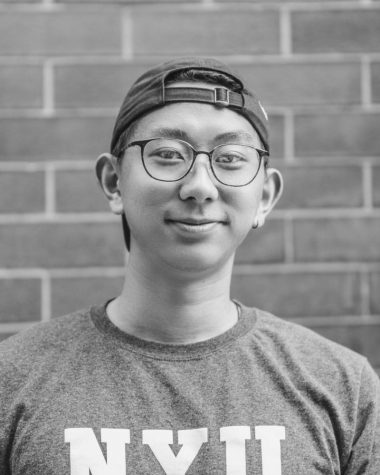What Is Love, Actually?
Love Actually, a CAS class created by NYU faculty, is about the neurology and psychology of various types of love.
April 10, 2017
There’s no denying the power and importance of love in every person’s life. But who truly understands its complexities? NYU’s College of Arts and Sciences offers a course called Love Actually that allows students to explore and delve deeper into this question and the subject of love itself. The course was recently featured in The Guardian.
Clinical Assistant Professor of Child and Adolescent Psychiatry Dr. Megan Poe and Assistant Professor of Child and Adolescent Psychiatry Dr. Francesco Ferrari created and developed the course together and each teach a section.
“We wanted to create a class that if we were back in college, we would be most interested in studying and learning about,” Ferrari said. “What inspired us was really human relationships and connections. The more we reflected on it, the more we thought about what the most important factor was in people getting better and feeling well in mental health in general.”
In the course, students study the neurobiology and psychology of love, exploring its different forms and stages of development, as well as its relationships to creativity, culture and everything in between. The class draws from diverse sources, using not only textbooks but also poetry, philosophy, film and art. Ferrari said this allows students to really think about the material.
“The course is more than learning or memorizing facts or concepts,” Ferrari said. “It’s really about the process of thinking about something in a new way and being critical about theories, ideas and challenging preconceived notions [the students] might have about love.”
Because love is both an expansive and personal subject, it is difficult to learn and explore it with just one approach. To tackle this, Ferrari and Poe incorporate not only the science of psychology and neuroscience, but also students’ distinct personal experiences.
“Mary Oliver has this quote, ‘The idea of love is not love’ and I love that because you can talk about things, but a lot of the material in class is emanating from the experience of love,” Poe said. “I think we wanted to impart and teach from those spaces, from the psychological experiences.”
Students in the class are able to learn about love and reflect on it in different ways by the many projects assigned in the class. Tisch senior Xiaoye Jing enjoys the freedom the projects allow the students to apply what they have learned in class.
“In our section, [Dr. Poe] has us do a lot of creative projects and gives us a lot of freedom to take whatever we learn in class, how we interpret or feel about it, and put it in an essay, film, photo or creative way,” Jing said.
For Tisch senior Andrew Ricci, this creative freedom has allowed him to gain a deeper understanding of how others view romantic relationships.
“This class has helped me understand that there are so many aspects of love and cultivating a healthy relationship with a partner or friend. It’s much more than something romantic,” Ricci said. “Having in class everyone else’s different experiences shows me that we’re all going through this.”
The course allows NYU students to bring their own narratives into the classroom and to learn about love using different perspectives and histories. This often encourages discussion that continues beyond the walls of the classroom.
“We give them a space to have conversation that most of us don’t get to have enough of in everyday life and hearing other people’s stories and realities,” Poe said. “We love that students take the conversation and talk to their partners, peers or parents and this lights a wick for other conversations to be had in other places.”
Email Tiffanie Hwang at [email protected].












































































































































Kate Hollett • Apr 11, 2017 at 2:01 pm
In 2010 and 2011, in Germany, I created a class called The Class Of Love”. Basically like this, the anthropology, philosophy, biology, neuroscience, psychology of love and media study, how we communicate emotions with media and culture. The class had an interactive website and the class created art and research work to continue the study. As well we added a community interactive part as well… it’s in a book published in 2013. Maybe that is where this idea came from? Thought it may interest you… the School of Thinking & Feeling, tsotf.com, and more at katehollett.com